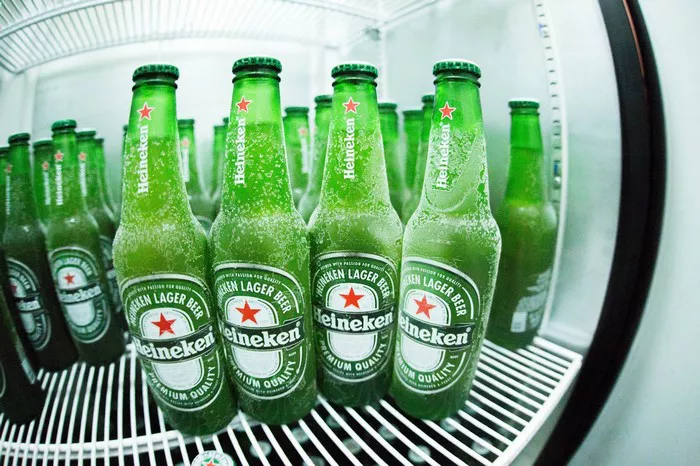The question of “how long does beer last unopened” is one that resonates with beer enthusiasts and casual consumers alike. Beer, a beloved alcoholic beverage enjoyed worldwide, has varying shelf lives dependent on several factors, including its type, packaging, storage conditions, and brewing process. Understanding these elements is crucial for maintaining the quality and taste of beer before cracking open that sealed bottle or can.
Factors Influencing the Shelf Life of Unopened Beer
The longevity of unopened beer is affected by multiple variables. The primary determinant is the type of beer and its brewing process. Beers like lagers, ales, stouts, and IPAs have different shelf lives due to their diverse ingredients, fermentation methods, and alcohol content. Higher alcohol content often correlates with extended shelf life, as it acts as a natural preservative.
Another significant factor is the packaging. Canned beer, shielded from light and air, generally maintains its quality longer than bottled beer. Brown or dark glass bottles offer better protection against light, which can cause beer to degrade more rapidly. Green and clear bottles provide less defense against light, potentially shortening the beer’s shelf life.
Temperature fluctuations play a crucial role in beer preservation. Beer stored in fluctuating temperatures can undergo chemical reactions, resulting in accelerated aging. Consistent and cool storage conditions, preferably in a dark and dry place, help prolong the freshness of unopened beer.
The Shelf Life of Different Beer Types
Lagers, characterized by their crispness and lightness, usually have a shelf life of about six to twelve months when unopened. These beers often have lower alcohol content and are more susceptible to flavor degradation over time.
Ales, which include a broad spectrum of styles like pale ales, porters, and stouts, typically have a shelf life ranging from six months to two years when unopened. Higher alcohol content in some ale varieties aids in preserving their quality for a more extended period.
Specialty beers, such as barrel-aged or sour beers, can have longer shelf lives due to their unique brewing processes and higher alcohol content. These beers can often last two to five years when properly stored unopened.
Storage Conditions for Maximizing Shelf Life
Maintaining proper storage conditions is crucial to extending the shelf life of unopened beer. The ideal storage temperature for beer is around 45-55°F (7-13°C). Storing beer in a cool, dark place such as a cellar, refrigerator, or a dedicated beer fridge can help preserve its quality by minimizing exposure to heat and light.
Consistency in temperature is essential. Fluctuations in temperature can accelerate chemical reactions within the beer, leading to off-flavors and a shorter shelf life. Therefore, storing beer in a place with a stable temperature is highly recommended.
Avoiding exposure to light is crucial, as UV rays can cause a chemical reaction called skunking, which produces a distinct “skunky” odor and alters the beer’s flavor profile. Dark or opaque containers and storage areas shield the beer from light, preserving its quality for a more extended period.
Indicators of Spoiled Unopened Beer
Determining if unopened beer has spoiled requires assessing several factors. Inspecting the packaging for any signs of damage, such as dents, leaks, or bulging cans, is crucial. Damaged packaging can lead to contamination and spoilage, rendering the beer undrinkable.
Another indicator is the appearance of the beer. If the liquid appears cloudy, hazy, or has floating particles, it might have undergone spoilage. Additionally, any unusual odors, such as a vinegar-like or foul smell, indicate that the beer has likely gone bad.
Taste is a definitive factor in assessing the quality of unopened beer. If the flavor differs significantly from the expected taste of that particular beer style or if it tastes stale or off, it is likely spoiled and not safe for consumption.
Best Practices for Maximizing Beer Freshness
To ensure the longest possible shelf life for unopened beer, adhering to certain best practices is crucial. Firstly, purchase beer from reputable sources with a good turnover rate to ensure you’re obtaining fresh stock. Checking the “best by” or “bottled on” dates can provide insights into the beer’s freshness.
Once acquired, store the beer in optimal conditions as soon as possible. Keeping it in a dark and cool environment, away from direct sunlight and temperature fluctuations, helps maintain its quality.
Avoid storing beer in the refrigerator door, as it experiences the most temperature fluctuations when opened frequently. Instead, place beer towards the back of the fridge, where the temperature remains more stable.
Maintaining a beer inventory log with purchase dates and types of beer can assist in ensuring that older stock is consumed first. This practice helps rotate the beer collection and prevents inadvertently letting beer go past its prime.
Extending the Shelf Life: Myths vs. Reality
Numerous myths surround the preservation of beer. One common misconception is that freezing beer extends its shelf life. While cold temperatures can slow down chemical reactions and bacterial growth, freezing beer may alter its taste and texture. Ice crystals forming within the beer can affect its flavor profile once thawed, leading to an unpleasant drinking experience.
Another prevalent myth is that all beer improves with age, similar to wine. While some specialty beers benefit from aging due to their complex flavor profiles and higher alcohol content, most beers are intended to be consumed fresh. Aging can cause certain beer styles to lose their intended flavors and become stale or oxidized.
Conclusion
The inquiry into “how long does beer last unopened” encompasses various considerations, including beer type, packaging, storage conditions, and individual preferences. Understanding these factors aids in maximizing the shelf life of unopened beer, ensuring its freshness and quality when finally enjoyed.
By comprehending the nuances of beer preservation and adhering to proper storage practices, enthusiasts and consumers can savor their favorite brews at their peak quality, appreciating the craftsmanship and flavors that define each unique beer style. Cheers to preserving the delightful essence of unopened beer for the perfect drinking experience.


